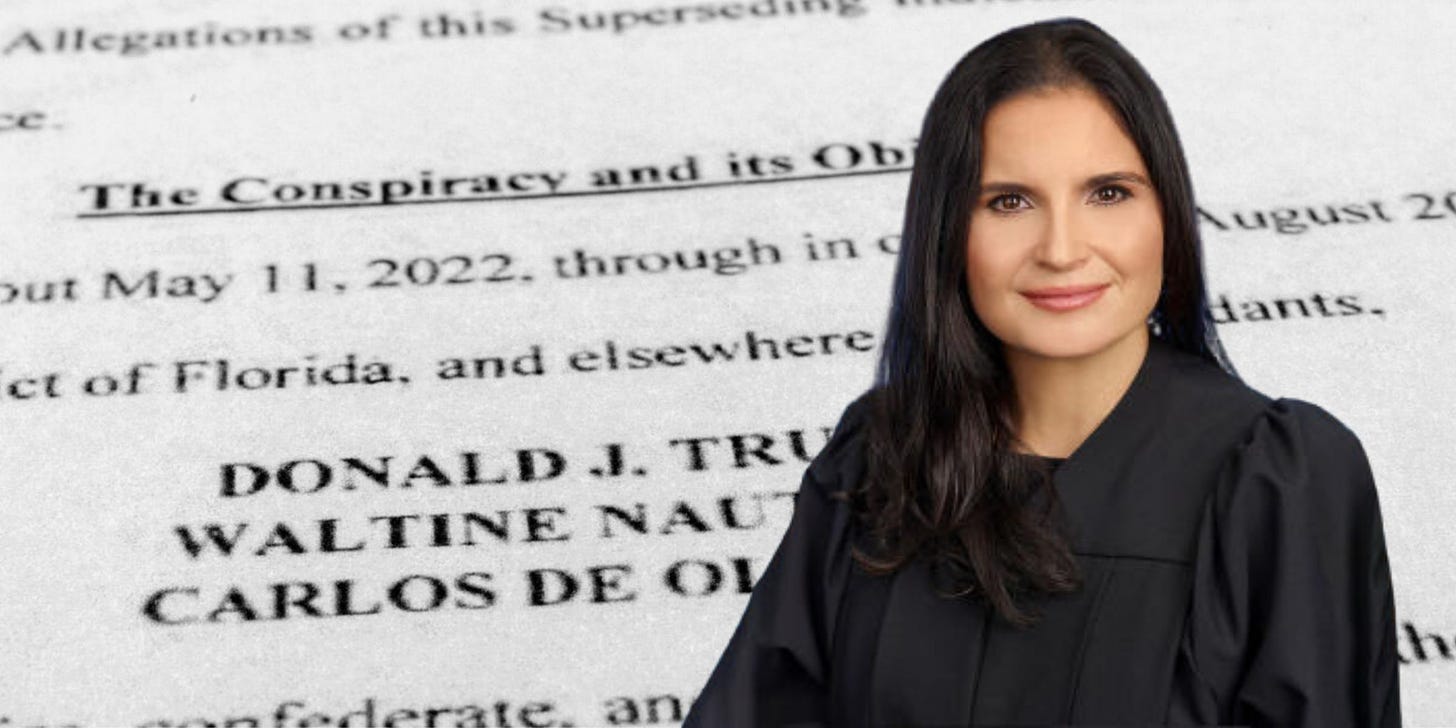Trump’s Bold PRA Defense Hits a Judicial Wall
Judge Cannon Dismisses Trump's Motion to Dismiss After Pressure to Issue a Ruling
Yesterday, U.S. District Judge Aileen M. Cannon, addressed the argument posited by former President Donald Trump's defense regarding the Presidential Records Act (PRA)1 was adjudicated in the context of charges related to the mishandling of classified documents. The core of Trump’s defense was the assertion that the PRA afforded him immunity from prosecution under the Espionage Act for retaining classified documents after his presidency.
Judge Cannon's ruling unequivocally rejected this defense. In her analysis, she clarified that the PRA does not preempt the Espionage Act in cases involving the mishandling of classified documents. This determination addresses the intersection of two significant pieces of legislation concerning the treatment and classification of presidential records and national security information.
In considering motions for pretrial dismissal, the judicial standard requires judges to assume the allegations presented in the complaint are true for the purposes of the motion. This does not equate to a determination of guilt or innocence but rather assesses the sufficiency of the complaint to proceed to trial.
Judge Aileen Cannon's order denying former President Trump's motion to dismiss is a procedural decision that is specifically confined to the pretrial stage.
The special counsel, Jack Smith, had pushed for the rejection of Trump's claims that the PRA permitted him to classify national security records as personal property. Judge Cannon's ruling emphasized that the PRA does not serve as a basis for pre-trial dismissal but did not close off the possibility of revisiting this argument at trial. This creates a potentially complicated situation for prosecutors regarding appeal options.
The ruling follows Trump's attempt to have the case dismissed based on the PRA, an argument anticipated to be swiftly rejected. Special Counsel Smith described the notion that such documents could be deemed personal property as a fundamentally flawed premise, especially given their highly classified nature and origin from the intelligence community and military.
Trump faces charges under the Espionage Act for willfully retaining national defense information and is accused of obstruction of justice for attempting to hide the records from authorities. The role of the PRA in this context was debated, with Cannon acknowledging Trump's argument to some extent earlier by directing both sides to prepare for jury instructions that might cover this issue.
This decision has broader implications, indicating a potential challenge for prosecutors if this defense is raised at trial, particularly because an acquittal would prevent an appeal due to double jeopardy constraints. However, pre-trial rulings can still be appealed, and Smith has indicated a willingness to challenge Cannon’s decisions at the appellate level.
The tension between the PRA's provisions and the charges laid out under the Espionage Act highlights the complex intersection of presidential privilege, national security, and the legal boundaries of personal versus public records. Judge Cannon’s ruling, while a short-term victory for the prosecution, leaves open questions about the applicability of the PRA and the potential for its use as a defense at trial. This ongoing legal debate is set against the backdrop of a broader discussion about presidential powers, record-keeping responsibilities, and the accountability of public officials.
The Presidential Records Act (PRA) of 1978, codified at 44 U.S.C. §§ 2201-2209, establishes the public ownership of all presidential records. Enacted in response to the Watergate scandal, the Act mandates the preservation of presidential documents as property of the United States Government, to be managed by the National Archives and Records Administration (NARA) after a president leaves office. The PRA defines "presidential records" as documentary materials created or received by the president, his immediate staff, or a unit or individual in the Executive Office of the President whose function is to advise or assist the president. The Act excludes personal records that are purely private or not related to the official duties of the president.





